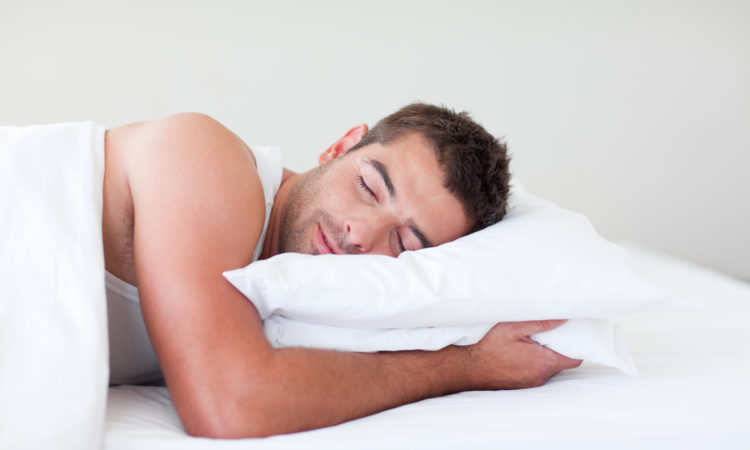
Some years ago, the St. Louis radio station I listened to aired a lot of testimonials from the station’s staff about a weightloss product that promised to make you lose weight “while you sleep.”
The testimonials came from many of the on-air personalities. One of the staff producers repeatedly bragged about how many pounds and inches she was losing by taking it before she went to bed. I could be wrong, but I believe other radio stations in the city also advertised the same product with their own testimonials.
The gimmick was the product somehow lowered cortisol, the stress hormone. Less stress and you lose weight. Don’t do anything, just sleep.
Eventually – the you-know-what hit the fan. I remember the one personality who didn’t participate (ironically, the one personality who most liked to stir up you-know-what) saying why he stayed away.
He could see that everybody who claimed to be losing so much weight still looked the same. They were recording basically fake testimonials because they got paid a percentage for every customer who ordered.
It was all a scam. As I recall, some or all of the participants lost their jobs.
They were lying, but thousands believed them because . . . who doesn’t want to lose weight while we sleep?
But . . . just the very idea has to be a scam?
As with all things weight loss, the truth is complicated, but necessary to know if you do wish to lose weight or simply maintain your current healthy weight.
The Truth Is . . .
You CAN lose weight while you sleep.
Chemically, fat is composed of various combinations of hydrogen (H), oxygen (O) and carbon (C).
When your body “burns” fat for energy, it’s broken down metabolically, forming carbon dioxide (CO2 = 84%) and water (H2O = 16%).
The CO2 goes out of your lungs as you exhale. The water goes out the usual way water leaves your body. (People who fast may have noticed they tend to urinate more than usual.)
Therefore, you lose weight as you sleep – with every breath you . . . exhale.
The problem is:
To burn fat while you sleep, you can’t be busy digesting food. That raises your blood’s level of glucose, which your body will burn preferentially for energy.
Therefore, the first rule for losing weight while you sleep is:
1. Eat your last meal (including snacks) of the day in the day, not night – at least four hours before bedtime.
Go to bed hungry.
It’s no secret: many overweight people stay up late at night – and snack while they’re binge-watching Netflix or browsing TikTok.
Experts used to believe this intake of excess calories caused their weight gain, so they told you to stop the late-night snacks.
So . . . just watch cat videos until 2:00 AM without snacking, and you’ll lose weight?
No. (Sorry.)
Second Rule of Losing Weight While You Sleep
2. Sleep 7-9 hours every night.
This accomplishes two things:
a. It regulates your ghrelin and leptin. Ghrelin’s a hormone that makes you hungry, increasing food intake up to 30%. It also increases fat storage, so it’s a double whammy. If you wish to lose weight, you must lower ghrelin.
Leptin is a hormone that makes you feel full, so you want to raise your levels of it.
Lack of sleep affects both ghrelin and leptin – in the wrong way. It increases ghrelin and decreases leptin.
b. Sleep regulates your overall metabolism.
Scientists don’t understand exactly why yet, but the link between lack of sleep and a messed-up metabolism is solidly established.
That means that when you haven’t slept enough, your cells and your mitochondria don’t burn calories efficiently. Therefore, calories hang around and are stored as fat.
A study came out just last year in the journal Cell. While their subjects slept, researchers sampled their exhalations every ten seconds. This enabled them to chart the metabolites in the exhalations, to see how their metabolisms were doing in every phase of sleep.
They found that when people sleep too little or get too little high-quality sleep, that disrupts certain metabolic pathways leading to their craving for more sugary foods.
How About Our Old Friend, Cortisol?
Yes, stress increases your levels of cortisol. To some extent, this is normal and healthy.
However, the excess cortisol that comes from chronic stress is harmful – and does increase your appetite, causing weight gain.
It also disrupts your sleep, causing a vicious cycle that feeds on itself.
When your body’s circadian rhythm is “on time,” you wake up to morning sunshine. You also have a high level of cortisol – and that’s good. You want lots of energy first thing in the morning.
Your cortisol (and energy) are supposed to decline gradually during the day. It should be at a low point late in the evening, so you feel tired and go to bed.
Unless you’re super stressed. Then you have too much cortisol late at night too – and that’s what disrupts your sleep.
Third Rule of Losing Weight While You Sleep
3. Get 7-9 hours of sleep every night by going to bed well before midnight and waking up relatively early every morning.
You must set the times that are practical for you.
During these hours, do NOT expose yourself to bright light except for safety. (Such as a trip to the bathroom.)
But get plenty of bright light in the first two hours after you get up early every morning. Sunshine is preferred, but indoor light will do the job.
Bright light early in the morning and as little light as possible during the night “sets” your body’s clock.
The Most Important Rule of Losing Weight While You Sleep
4. No night’s sleep – no matter how good – will make up for your GAINING weight during the day.
That is: while you’re awake, eat only healthy foods and get plenty of exercises.
Then you’ll find “Early to bed and early to rise” will support your healthy weight loss – all day long.
https://www.youtube.com/watch?v=VAEzZeaV5zM
https://en.wikipedia.org/wiki/Fat
https://www.sciencealert.com/where-body-fat-ends-up-when-you-lose-weight
https://www.yourhormones.info/hormones/ghrelin/
https://www.sleepfoundation.org/physical-health/sleep-and-overeating
https://www.orlandohealth.com/content-hub/how-too-much-stress-can-cause-weight-gain-and-what-to-do-about-it







